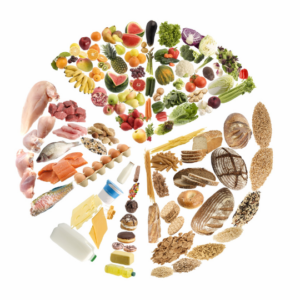Nutritional Needs at Different Ages: Key Nutrients For Each Life Stage
Nutrition is a vital part of every stage of life, but what our bodies need changes as we grow. From babies to seniors, our dietary needs are as unique as each stage of life. By understanding the key nutrients that each age group requires, we can better support our health at every turn.
Infants (0-12 months)
In the first year of life, babies grow at an incredible rate, and nutrition plays a central role in that development. For the first 6 months, breast milk or formula provides all the nutrients your baby needs, including:
- Proteins: For building and repairing tissues.
- Fats: Crucial for brain development and energy.
- Vitamins and Minerals: Vitamin D, iron, calcium, and zinc support the immune system, bones, and overall growth.
At around 6 months, babies are ready for solids, but milk or formula remains a core part of their diet. Soft, pureed fruits, vegetables, and cereals start adding the extra vitamins and minerals they need as they grow.
Toddlers (1-3 years)
As toddlers transition from milk to more solid foods, it’s important to ensure they get enough of the nutrients they need for healthy growth and development. Key nutrients include:
- Iron: Essential for brain development and preventing anemia. Sources include meat, beans, and fortified cereals.
- Calcium and Vitamin D: Important for strong bones and teeth. Dairy products, fortified milk alternatives, and leafy greens are great sources.
- Healthy Fats: Still crucial for brain development. Avocados, whole milk, and nut butters provide the right kind of fat.
- Fiber: Helps with digestion, and you can find fiber in whole grains, fruits, and vegetables.
Children (4-8 years)
As kids grow, their energy needs increase. To fuel their active lifestyles and support healthy growth, a balanced diet is essential. Focus on these key nutrients:
- Protein: For growth and development. Good sources include lean meats, eggs, and beans.
- Calcium and Vitamin D: Vital for strong bones and teeth. Dairy, fortified plant-based milks, and leafy greens are important here.
- Iron: Helps with brain development and energy. Red meat, spinach, and iron-fortified cereals are excellent choices.
- B Vitamins: They help with energy metabolism and keeping the nervous system functioning well. Whole grains, vegetables, and fruits are packed with B vitamins.
- Fiber: Promotes digestive health, and can be found in fruits, vegetables, and whole grains.
Adolescents (9-18 years)
Adolescence is a period of rapid growth, and nutrition is key to supporting those changes. As teens grow taller and stronger, their dietary needs become more specific:
- Calcium and Vitamin D: Crucial for building strong bones during these growth years. Dairy products, fortified milk alternatives, and leafy greens are great sources.
- Protein: As muscles grow and repair, protein becomes even more important. Think lean meats, fish, eggs, and plant-based proteins like beans and lentils.
- Iron: Particularly important for girls, who are more likely to experience iron deficiency due to menstruation. Iron-rich foods like red meat, spinach, and beans can help.
- Zinc: Supports the immune system, growth, and healing. Zinc can be found in meats, beans, and nuts.
- Healthy Fats: Omega-3 fatty acids support brain health, so fish, flaxseeds, and walnuts are good choices.
Adults (19-50 years)
As adults, we reach a point where maintaining a balanced diet becomes key to staying healthy long-term. Good nutrition supports everything from energy levels to disease prevention, so it’s important to include:
- Protein: To maintain muscle mass and overall health. Include lean meats, fish, eggs, and plant-based proteins.
- Fiber: Helps with digestion and managing weight. Whole grains, fruits, vegetables, and legumes are high in fiber.
- Calcium and Vitamin D: Important for bone health and preventing conditions like osteoporosis. Include dairy, fortified plant-based milk, and leafy greens.
- Healthy Fats: Omega-3s are crucial for heart health, so include fatty fish, walnuts, and flaxseeds.
- Antioxidants: Found in colorful fruits and vegetables, antioxidants help combat oxidative stress and reduce the risk of chronic diseases.
Seniors (50+ years)
As we age, our bodies require extra care to maintain health and prevent age-related issues like bone loss, muscle mass decline, and cognitive decline. Key nutrients for seniors include:
- Calcium and Vitamin D: These nutrients are even more important for bone health as we age, helping prevent osteoporosis and fractures. Seniors may need higher amounts of Vitamin D, which can be found in fatty fish, fortified dairy, and through sunlight.
- Protein: To prevent muscle loss and maintain strength. Lean meats, fish, eggs, and plant-based proteins are key.
- B Vitamins: Especially Vitamin B12, which is important for brain health and cognitive function. Seniors often need to pay closer attention to their B12 intake, as absorption becomes less efficient with age. It’s found in animal products like meats, fish, and eggs.
- Fiber: Helps maintain digestive health and prevent constipation. Whole grains, fruits, and vegetables are your fiber go-tos.
- Antioxidants and Omega-3s: These support brain function and reduce inflammation. A diet rich in fruits, vegetables, and omega-3 fatty acids from fish or seeds can keep your brain sharp and your body feeling good.
Conclusion
Nutritional needs evolve throughout life, and paying attention to what your body needs at different stages can help you stay healthy, energized, and strong. Whether you’re caring for a baby, a growing child, or an aging loved one, understanding their unique nutritional requirements will help support their health at every stage of life. So, make sure you’re eating the right foods for your age, and enjoy the benefits of a well-rounded diet that nourishes your body through every chapter.

